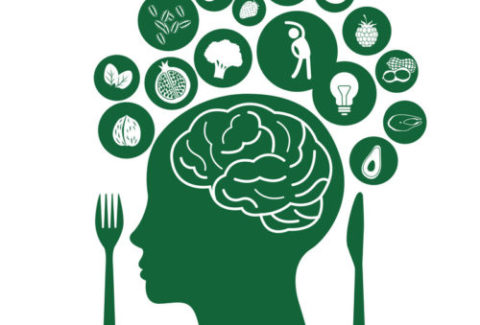All Diseases Begin in the Gut: Unraveling the Gut-Health Connection
It was the ancient Greek physician Hippocrates who first stated, “All diseases begin in the gut.[1]” Though this proclamation was made over two thousand years ago, it is now gaining significant attention and validation in modern medicine. Emerging research is shedding light on the profound connection between gut health and a wide range of diseases, from digestive disorders to autoimmune conditions, mental health issues, and more.
In this article, we will explore the concept that all diseases may indeed have their origins in the gut.
The Gut as the Epicenter of Health
The human digestive system is a complex and dynamic ecosystem. It comprises of the stomach, small intestine, large intestine, and a vast network of microorganisms, primarily bacteria, known as the gut microbiome[2]. This microbiome, which consists of trillions of microorganisms, plays a pivotal role in various aspects of health.
Digestion and Nutrient Absorption and Immune System Function:
The primary function of the gut is to digest food and absorb nutrients. A healthy gut[3] efficiently breaks down food, allowing the body to extract essential vitamins, minerals, and energy. Any disruption in this process can lead to malnutrition, various digestive disorders, and problems with the immune system. Surprisingly, a significant portion of the immune system resides in the gut. The Gut-Associated Lymphoid Tissue (GALT) plays a crucial role in defending against pathogens and regulating immune responses.[4] An imbalance in the gut microbiome can compromise immune function, making the body more susceptible to infections and autoimmune diseases.
Inflammation and Chronic Diseases, including Mood and Mental Health:
Chronic low-level inflammation is a common thread in many diseases, including heart disease[5], diabetes, and cancer. An imbalanced gut microbiome can promote inflammation, potentially contributing to the development and progression of these conditions. Further, the gut-brain connection, often referred to as the gut-brain axis[6], has garnered considerable attention. Research suggests that the gut microbiome can influence mood and mental health. An unhealthy gut may contribute to conditions such as anxiety, depression, and even neurodegenerative disorders[7] like Alzheimer’s disease.
Autoimmune Diseases and Skin Health:
The gut plays a role in regulating the immune system’s tolerance to self. An unhealthy gut microbiome can lead to a loss of self-tolerance, potentially triggering autoimmune diseases in genetically susceptible individuals[8]. The gut-skin connection is another intriguing area of research. Conditions like acne, eczema, and psoriasis may be influenced by gut health, as the gut and skin share a close relationship.
Nurturing Gut Health
Maintaining a healthy gut is essential for overall well-being and there are strategies to support gut health.
Balanced Diet:
A diet rich in fiber, fruits, vegetables, and probiotic-rich foods like yogurt and fermented foods can promote a diverse and healthy gut microbiome. Probiotic supplements can introduce beneficial bacteria into the gut[9]. They may be helpful in specific conditions or after taking antibiotics. Prebiotics are compounds found in certain foods that nourish beneficial gut bacteria. Foods like garlic, onions, and bananas are good sources of prebiotics.
What to Do:
Avoid antibiotic overuse. Antibiotics can disrupt the gut microbiome.[10] Use them judiciously and only when prescribed by a healthcare provider. Chronic stress can negatively affect gut health. Practices like mindfulness, meditation, and relaxation techniques can help. Drinking plenty of water supports digestion and helps maintain gut health.
In Conclusion
While more research is required to accurately claim that all diseases begin in the gut, it is increasingly evident that gut health plays a pivotal role in our overall well-being. The intricate interplay between the gut microbiome, digestion, immunity, and various disease processes is an exciting frontier in medical research. By nurturing our gut health through a balanced diet, stress management, and other healthy habits, we can take proactive steps toward better health and disease prevention. After all, Hippocrates’ ancient wisdom still rings true: a healthy gut is the cornerstone of good health.
What’s Next:
- Review Past Articles: Delve deeper into nutrition and well-being by revisiting previous articles in this series.
- Stay Informed: Keep up with the latest research and recommendations on nutrition for optimal health.
- Client Conversations: Continue to engage in regular conversations with your clients about nutrition, helping them overcome obstacles to healthier eating habits.
Remember, as clinicians, your awareness and understanding of nutrition are essential for inspiring positive transformations in both you and your patients. This series equips you with the tools needed to empower change and optimal well-being.
Until the next article, let’s continue our quest for discovery and healing through the power of nutrition.
[1] Harkins, Patricia et al. “’All disease begins in the gut’-the role of the intestinal microbiome in ankylosing spondylitis.” Rheumatology advances in practice vol. 5,3 rkab063. 11 Sep. 2021, doi:10.1093/rap/rkab063
[2] Shreiner, Andrew B., John Y. Kao, and Vincent B. Young. “The gut microbiome in health and in disease.” Current opinion in gastroenterology 31.1 (2015): 69.
[3] Shanahan, Fergus, Tarini S. Ghosh, and Paul W. O’Toole. “The healthy microbiome—what is the definition of a healthy gut microbiome?.” Gastroenterology 160.2 (2021): 483-494.
[4] Mörbe, Urs M., et al. “Human gut-associated lymphoid tissues (GALT); diversity, structure, and function.” Mucosal immunology 14.4 (2021): 793-802.
[5] Kim, Seungbum, et al. “Imbalance of gut microbiome and intestinal epithelial barrier dysfunction in patients with high blood pressure.” Clinical science 132.6 (2018): 701-718.
[6] Romijn, Johannes A., et al. “Gut–brain axis.” Current Opinion in Clinical Nutrition & Metabolic Care 11.4 (2008): 518-521.
[7] Chandra, Sreyashi, et al. “Healthy gut, healthy brain: the gut microbiome in neurodegenerative disorders.” Current topics in medicinal chemistry 20.13 (2020): 1142-1153.
[8] Xu, Huihui, et al. “The dynamic interplay between the gut microbiota and autoimmune diseases.” Journal of immunology research 2019 (2019).
[9] Khalesi, Saman, et al. “A review of probiotic supplementation in healthy adults: helpful or hype?.” European journal of clinical nutrition 73.1 (2019): 24-37.
[10] Ramirez, Jaime, et al. “Antibiotics as major disruptors of gut microbiota.” Frontiers in cellular and infection microbiology 10 (2020): 572912.









